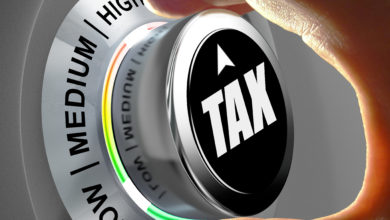Liberté for Consumers
Article first published in The Wall Street Journal Europe on February 21, 2008.
The High Court at Versailles agreed with the French booksellers’ association, ordering Amazon.fr in December to begin charging for shipping. Judicial rulings like that unfortunately convert the market of goods into a political market.
Bargain hunters in France have to be fast because, regrettably, sales in this country run just a limited time. There’s the summer sale, generally in July, and the winter sale, generally in January. Outside these regulated mark-down seasons, customers must usually pay the full price.
In recent years there was an exception, and it applied to books. These jewels of the spirit were available at very attractive prices on Amazon.fr, which besides offering a regular 5% discount on all books also provided free shipping on purchases over OE20. Wasn’t this a fabulous opportunity to save money while raising one’s level of culture?
Unfortunately, the French booksellers’ association thought otherwise and sued the Internet shop, arguing that free delivery amounted to an illegal discount under a 1981 law governing the pricing of books. The High Court at Versailles agreed with the complainant, ordering Amazon.fr in December to begin charging for shipping. Unhappy with this ruling, more than 120,000 people rushed to sign a petition for the U.S.-based firm to preserve the free delivery of books. The company, meanwhile, is paying OE1,000 a day in fines as it awaits the outcome of last month’s appeal against the court’s decision.
But is it not peculiar to have to “vote” again in favor of something that you’ve already voted for? Each time customers bought a book on Amazon.fr, they agreed to a service exchange with the company. This is what’s so terrific about the market: Every vote counts. In buying a book, we are giving our agreement, just as we could refuse it by opting for another product or a different seller. The market is governed by the law of individual choice, and the success of Amazon.fr shows that many customers support the company’s “candidacy.”
The political arena in democracies works differently. There, the law of the majority prevails and we only rarely have a chance to give our views on how we should be ruled. And even those occasional elections are hardly satisfying. To paraphrase Nobel economics laureate Milton Friedman, a political vote is at best one in a thousand – and you won’t necessarily get what you voted for, but rather what 51% of voters wanted.
Nothing like this occurs in the market: Every purchase counts, as does every refusal to purchase. That’s why, if you want the supremacy of consumers to prevail, you have to preserve the field of action in which they can express themselves freely. Judicial rulings like that of the High Court at Versailles unfortunately convert the market of goods into a political market. They require consumers to affirm again, through a petition, an agreement they have previously made. If said petition fails, consumers are left without any effective means of getting their voices heard.
The free market gives consumers control over their own choices and wallets. To keep those wallets from being emptied too quickly, we must stop politicizing all choices in life, not least those of how to buy a book.
Cécile Philippe, director, Institut économique Molinari





